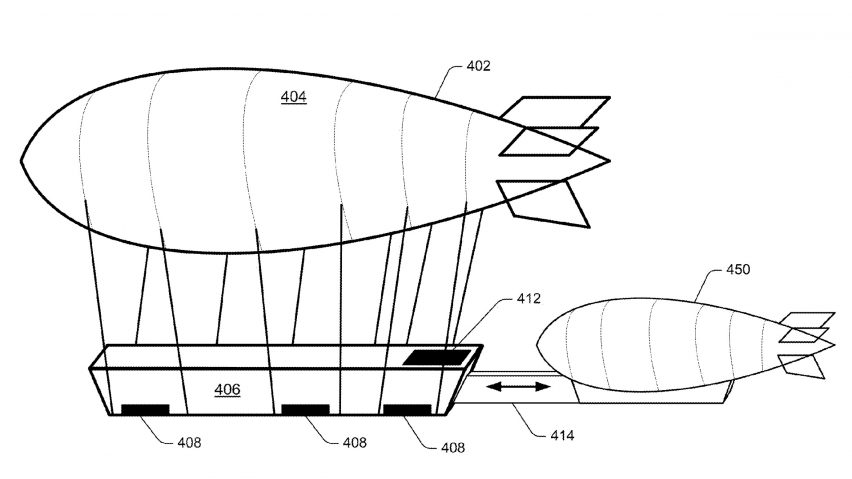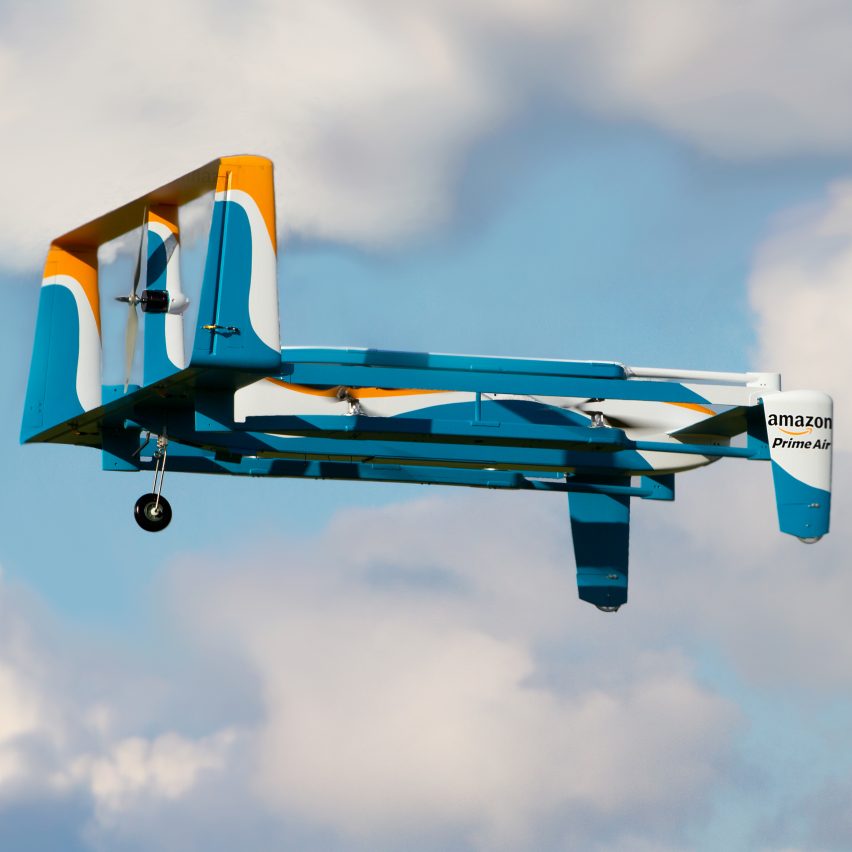
Amazon files patent for flying warehouses filled with drones
Amazon has filed a patent for huge flying warehouses that could house its fleet of delivery drones.
The patent, originally filed by the online retailer in 2014, emerged yesterday. It details that the warehouses, referred to as "airborne fulfilment centres" (AFCs), would be carried by airships.
These AFCs could be stationed above cities, and used to store and rapidly deliver items at times of high demand. They would do this using the drones – also known as unmanned aerial vehicles, or UAVs.
The document states that drones dispatched from AFCs would use no power, as they would glide downwards rather than fly. The drones are also said to be able to cruise and hover at altitudes of up to 45,000 feet (14,000m).
"The AFC may be an airship that remains at a high altitude and UAVs with ordered items may be deployed from the AFC to deliver ordered items to user-designated delivery locations," states the document.
"As the UAVs descend, they can navigate horizontally toward a user-specified delivery location using little to no power."

The filing also details a series of "shuttles", which may be used to replenish the larger AFCs with stock and fuel, or even to transport workers to and from the airborne warehouses.
Areas in which the document suggests the AFCs would be most useful are sporting arenas or music festival sites, where high volumes of merchandise is sold, but where access is difficult.
Amazon declined Dezeen's request for further information.
After initial tests with flying robots, the online retail giant launched a video in 2015 showing the latest version of its self-piloted delivery drones at work.
The drones appeared to be an update on previous prototypes unveiled by Amazon, and featured a body that resembles a typical aeroplane, with three tail fins and a small propellor.
At the time, the retailer claimed the service would be able to deliver packages weighing up to five pounds (2.2 kilograms) in 30 minutes using the small aeroplane-shaped drones, which can travel up to 15 miles.